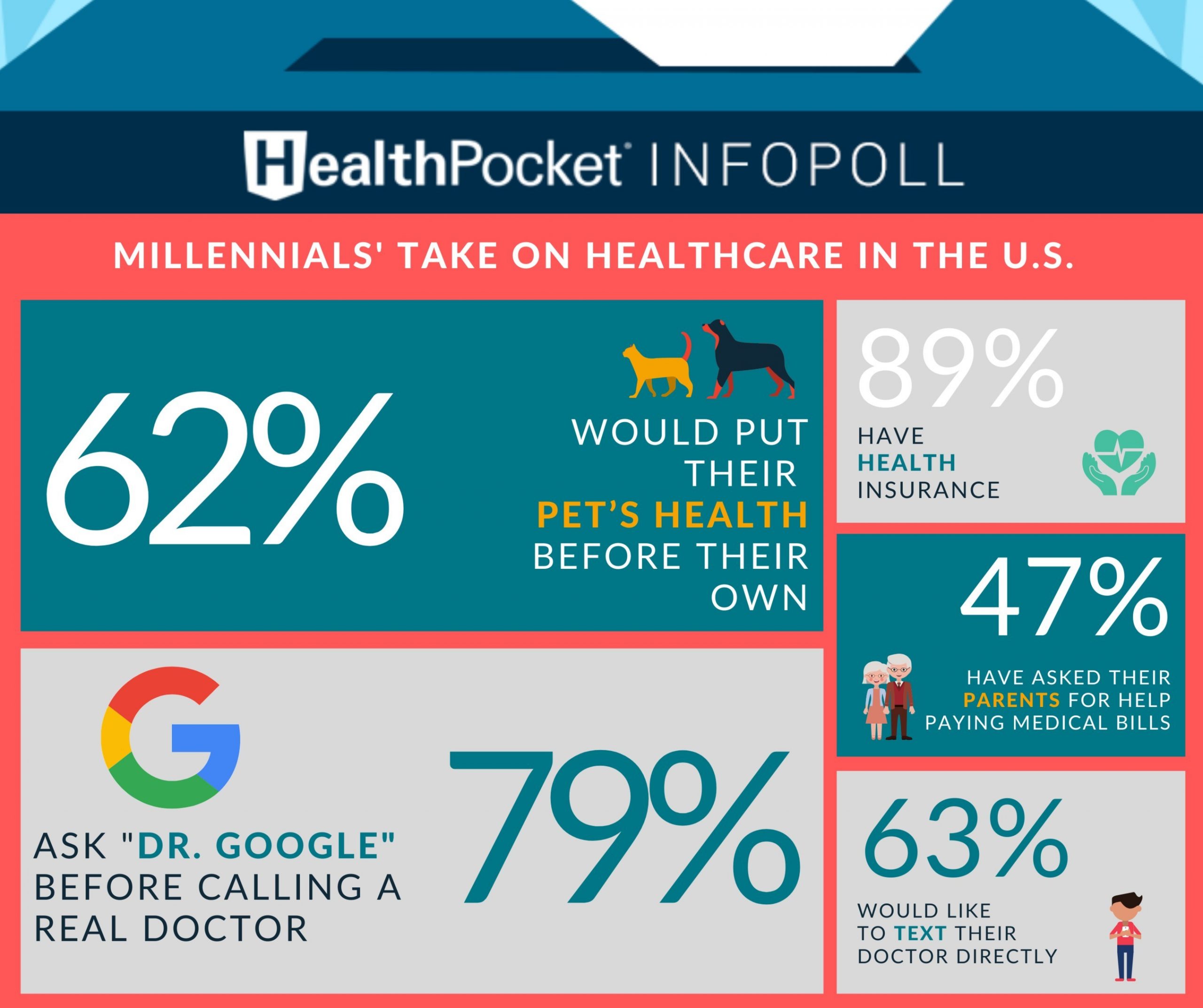Putting Fido first. HealthPocket, a free information source designed to help consumers find medical coverage, today released results of a millennial health insurance survey which found that 62% of millennials would take their pet to the vet before going to the doctor for themselves.
While millennials love their pets, they also like their health insurance, with 89% reporting they currently have coverage. According to the survey results, four in ten (40%) of millennials have even stayed at a job they weren’t happy at in order to keep their health insurance. When it comes to paying their medical bills, nearly half (47%) admit to having to ask their parents for help. However, 54% report having gone without health insurance at some point.

The survey asked about certain behaviors and found that millennials rely on technology when it comes to their health. Seventy nine percent say they ask “Dr. Google” about an ailment before making an appointment to see an actual doctor. When millennials do see a doctor, 63% think they should be able to text their doctor directly. Almost half (45%) are more likely to try telemedicine before visiting a doctor’s office.
Entire survey results URL: https://www.healthpocket.com/healthcare-research/surveys/how-millennials-approach-health-insurance
Some other key findings:
50% of millennials have used the wellness benefits of their health insurance policy
21% use a drop-in clinic for their routine medical care
44% don’t get an annual physical each year
26% don’t make a regular yearly visit to a primary care physician
45% only go to their primary care physician once a year for their annual physical
51% of millennials have life insurance
25% of millennials have pet insurance
METHODOLOGY:
The results above were gathered through an online poll of over one thousand people who are between the ages of 20-35. The poll was conducted in early December 2019 and was weighted to get representative samples from each state based on population. Race, education, and health insurance status were not examined. The margin of error across survey responses is estimated at +2.7%/-2.7%.
SOURCE: HealthPocket
https://www.healthpocket.com
Leave a Reply